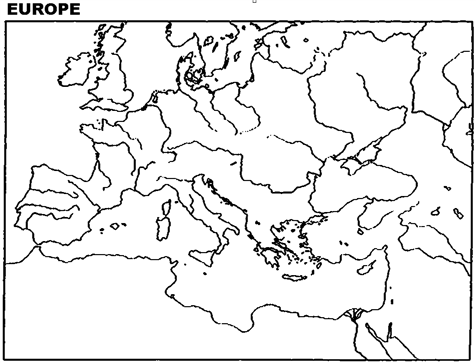Exam 3: Intellectual Transformation: the Scientific Revolution and the Age of Enlightenment
Exam 1: Transition to the Modern Age: Renaissance and Reformation102 Questions
Exam 2: Political and Economic Transformation: National States, Overseas Expansion, Commercial Revolution84 Questions
Exam 3: Intellectual Transformation: the Scientific Revolution and the Age of Enlightenment86 Questions
Exam 4: The Era of the French Revolution: Affirmation of Liberty and Equality92 Questions
Exam 5: The Industrial Revolution: The Transformation of Society79 Questions
Exam 6: Thought and Culture in the Early Nineteenth Century82 Questions
Exam 7: Surge of Liberalism and Nationalism: Revolution, Counterrevolution, and Unification78 Questions
Exam 8: Thought and Culture in the Mid-Nineteenth Century: Realism, Positivism, Darwinism, and Social Criticism86 Questions
Exam 9: Europe in the Late Nineteenth Century: Modernization, Nationalism, Imperialism93 Questions
Exam 10: Modern Consciousness: New Views of Nature, Human Nature, and the Arts78 Questions
Exam 11: World War I: The West in Despair83 Questions
Exam 12: An Era of Totalitarianism88 Questions
Exam 13: World War II: Western Civilization in the Balance56 Questions
Exam 14: Europe After World War II: Recovery and Realignment, 1945-198963 Questions
Exam 15: The Troubled Present55 Questions
Select questions type
Key Terms Instructions: Please define the following key terms. Show Who? What? Where? When? Why Important?
Deism
(Essay)
4.9/5  (39)
(39)
Please use this outline map of Europe to answer the question(s).
 -Show the widespread nature of the Scientific Revolution by locating on a map of Europe some areas where significant achievements occurred. List the place and the achievement.
-Show the widespread nature of the Scientific Revolution by locating on a map of Europe some areas where significant achievements occurred. List the place and the achievement.
(Essay)
4.8/5  (24)
(24)
Of the following, who expressed the most interest in using science to advance trade, industry, and the condition in which human beings live?
(Multiple Choice)
4.9/5  (38)
(38)
Key Terms Instructions: Please define the following key terms. Show Who? What? Where? When? Why Important?
epicycles
(Short Answer)
4.8/5  (36)
(36)
Key Terms Instructions: Please define the following key terms. Show Who? What? Where? When? Why Important?
"I think, therefore I am."
(Short Answer)
4.9/5  (44)
(44)
Key Terms Instructions: Please define the following key terms. Show Who? What? Where? When? Why Important?
elliptical
(Short Answer)
4.7/5  (33)
(33)
Discuss the relationships of both Copernicus and Galileo to the Roman Church.
(Essay)
4.9/5  (41)
(41)
Which of the following refused to publish his work due to his concern that it would spark controversy?
(Multiple Choice)
4.9/5  (33)
(33)
That "Man is born free; and everywhere he is in chains" was the stirring pronouncement of
(Multiple Choice)
4.8/5  (39)
(39)
Key Terms Instructions: Please define the following key terms. Show Who? What? Where? When? Why Important?
Aristotelian-Ptolemaic System
(Essay)
4.9/5  (31)
(31)
Medieval thinkers constructed a coherent picture of the universe that blended the theories of which of the following ancient Greeks?
(Multiple Choice)
4.9/5  (48)
(48)
Which characteristics of the philosophes illustrate a new way of looking at the world? List three major philosophes and comment upon their major contributions.
(Essay)
4.8/5  (44)
(44)
Key Terms Instructions: Please define the following key terms. Show Who? What? Where? When? Why Important?
Diderot
(Essay)
4.7/5  (35)
(35)
Key Terms Instructions: Please define the following key terms. Show Who? What? Where? When? Why Important?
enlightened despotism
(Essay)
4.8/5  (43)
(43)
Which of the following discovered the three basic laws of planetary motion?
(Multiple Choice)
4.8/5  (40)
(40)
Which enlightenment thinker argued that humans are born with a mind that was a blank slate?
(Multiple Choice)
4.8/5  (38)
(38)
Showing 21 - 40 of 86
Filters
- Essay(0)
- Multiple Choice(0)
- Short Answer(0)
- True False(0)
- Matching(0)